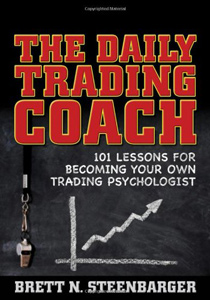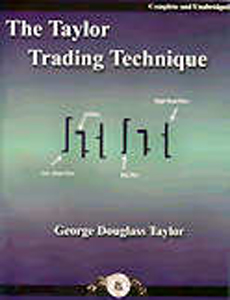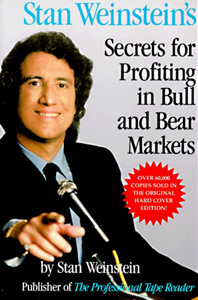Corporate Misconduct

Further Reading
In this special article, we will look at corporate misconduct in Australia. We will examine what it is, some history, examine why these corporate executives misbehave and look at the current case of corporate misconduct in the courts.
What is Corporate Misconduct?
Corporate misconduct is all about the misbehaviour of corporations. It's about the responsibility that the company executive carry when they join the board of directors. The directors have a fiduciary duty to act honestly, in good faith and in the best of their ability serve the best interests of the company.
Corporate governance is the system by which companies are directed and managed and the mechanisms help to prevent any corporate misconduct. The company and its directors must be transparent and accountable. Transparency means that the company must disclose crucial information such as executive remuneration and loans, financial interests of directors, contracts and so forth. Accountability means that the directors and other officers of a company should be accountable for their actions. They are accountable to the stakeholders. Stakeholders vary from the shareholders of the company, creditors, employees, customers and clients, contractors and other people (for example, the “public”). Sometimes the difficulty in policing the accountability duty is that there may be a conflict of interest between two stakeholders.
Who is the police when corporate misconduct is in the air? Basically the company is self-regulated, or they need to abide by industry codes of conduct. Then there are regulatory authorities such as auditors, regulators such as Australian Securities and Investment Commission (ASIC) and APRA and companies also need to follow the requirements of their stock exchange listing (enforceable by the stock exchange, penalty of serious offences include delisting. The Australian Institute of Company Directors have developed a Code of Conduct. Where every member of the Institute is expected to comply but the code is not really enforceable.
Australian Corporate Misconduct History
Australian corporate misconduct has been in the news quite a bit over the past few years. Do the names of Vizard, Rene Rivkin, Rodney Adler and Ray Williams ring any bells? How about OneTel, HIH, GIO and AMP, AWB, and Multiplex?
Steve Vizard, who served on the board of Telstra was fined $390,000 and a 10-year ban as a director for illegal share trading during his time on the board of Telstra. He was also ordered to pay for ASIC's legal costs.
Rene Rivkin, another share trader was sentenced to the periodic jail term and fined $30,000 after a jury found him guilty on April 30 of one count of insider trading. During the trial in the NSW Supreme Court, the Crown alleged Rivkin bought 50,000 Qantas shares just hours after being told by Impulse Airlines executive chairman Gerry McGowan of a potential merger between the two airlines. This constituted insider trading under the Companies Act, because Rivkin knew the information was not generally available and was likely to affect the price of Qantas shares.
Rodney Adler, former HIH director was sentenced to four and a half years' jail, with a non-parole period of 2 years, on four charges of dishonesty over his conduct as a director of HIH Insurance. HIH collapsed in March 2001 with debts of $5.3 billion, triggering a torrent of litigation. The Australian Securities and Investments Commission has laid 31 criminal charges against nine HIH executives. One of them, Bill Howard, was given a suspended three-year sentence in 2003. The former HIH director told lies to boost the value of HIH shares - of which he had millions - and he told lies to get $2 million out of HIH for a struggling company that he controlled. The insurance company became Australia's biggest corporate meltdown, leaving billions of dollars in debts and thousands of people without insurance cover. The Australian Securities and Investments Commission (ASIC) launched an investigation and in 2002 he was banned for 20 years from managing a corporation.
Ray Williams, founder of HIH also went to jail for his corporate misconduct. Williams had founded the company as a 32-year-old in 1968. Williams pleaded guilty before trial to three counts of signing false documents issued to people who either lent HIH money or invested in its shares. The most serious, charge was the publication of HIH's 1999 annual report, whose $102 million profit included fictional earnings of $92 million. The three criminal charges against him carried a maximum jail term of 12 years.
Then there was the case of Multiplex and Wembley stadium. Multiplex failed to disclose price-sensitive information about how much it lost building the UK's Wembley Stadium. In 1998, GIO knocked back a takeover bid by AMP which valued the company at $5.35 a share. The following year, GIO's share price collapsed after management failed to make provision for disastrous re-insurance losses. And what about the example of AWB’s oil-for-food scandal.
Why Do Corporate Executives Misbehave?
So why do these high flying corporate executives misbehave? These people are financially rich. They are worth tens of millions of dollar, so why do they risk their reputation, freedom and wealth for more money? Of course people would shout out greed! But that isn’t the complete answer. Economist Adam Smith had argued that the free market had natural checks and balances that would constrain greed, selfishness and fraud; that concern for reputation and the loss of commercial potential would limit fraud and negligence. Add some more obvious fears - jail and social ostracism - and the system generally works as Smith envisaged. But the exceptions are glaring and disquieting. Over the past years the public has seen executives go down in history. There was the case of the CEO with an unblemished record who is sacked after cartel behaviour is uncovered within Amcor who was under pressue, or how about the amoral behaviour of James Hardie. Or is it simply the instinctive, insatiable greed of Adler, Rivkin or Vizard.
There are is a distinction in the reasons as to why these corporate executives misbehave. There are those directors who are ovderacheivers in their jobs, doing their best in their corporate roles. They behave badly, not for direct personal gain but from some misconceived notion of protecting the corporate interests and meeting the insatiable demands of the sharemarket, you can place that Amcor CEO and James Hardie into that basket. Then you’ve got Alan Bond, Christopher Skase, Ray Williams, Vizard and Adler: whose ambitions, egos, inability to distinguish between other people's money and their own, and appetite for risk-taking are ingrained character flaws. They don’t need the money. It seems like they exercise greed like a reflex without thought.
The Latest Case of Corporate Misconduct
The latest case of corporate misconduct in Australia being dragged through the courts now is Aristocrat. Aristocrat Leisure (ALL) has conceded in the Federal Court that it had overstated profits from its disastrous foray into the South American poker machine business in 2001 and the first half of 2002, and should have corrected bullish statements about its full-year result for 2002. The announcement in February 2003 of a profit drop in the face of predictions of a 27 per cent increase claimed the jobs of chief executive Des Randall and others, wiped $1.5 billion from Aristocrat's stockmarket value in 2003 and spawned a shareholder class action. The shareholders' law firm, Maurice Blackburn Cashman, estimates that the case could cost the company $190 million on one assessment of damages and $396 million on a second. The company has also conceded that from December 10, 2002, it had no reasonable grounds for sticking with a forecast it would earn $109 million after tax that year. Aristocrat is not throwing in the towel. "Aristocrat will continue to vigorously defend the claim," the company said today. Maurice Blackburn Cashman's chairman Bernard Murphy says Aristocrat misled shareholders by not giving accurate them information about the company's financial position. "We're very confident that the case is very strong example of corporate misconduct and of breech of obligations to keep shareholders properly informed," he said. The investors claim the company overstated its profits by $18 million in 2001 and 2002, and maintained an unrealistic profit forecast, which caused a dramatic fall in the share price once it was downgraded.
- How to Trade Forex and Gold Options
- How to Trade the Gold Price and Profit!
- Forex Trading the EUR/USD Pair € EURO and $ US Dollar
- How to Trade Stock Market Indices S&P500
- How to Trade Crude Oil
- Forex Trading Psychology
- What Are Broker Recommendations?
- Free Tickets to Trading & Investing Seminar & Expo ($18) Brisbane 2013
- Stock Calc App
- All About Warrants
- Introduction to Exchange Traded Funds
- Introduction to Exchange Traded Funds: Features
- Introduction to Exchange Traded Funds: Domestic ETFs
- Introduction to Exchange Traded Funds: International ETFs
- Exchange Traded Commodities
- Australian Stock Scan
- Australian Online Share Trading
- List of Trading Books
- Interesting Thoughts about the Australian Dollar
- What's the Meaning of Hawkish?
- Do You Know How To Use the P/E Ratio
- Trading, Religion and Politics - Do They Have Anything in Common?
- Shares that are Volatile that Double and Half in the Short Term
- Telstra (TLS) T3
- Margin Call by E-mail
- The Cost of Holding a Position
- Lack of Disclosure: Compensation from ASX Listed Company
- Unrealistic Returns and Benchmarks
- CMC Markets Down
- Quality versus Quantity Forex Trading
- Woolworths 1H Sales $30.7bn up 3.2%
Date added 31-01-2013 - ASIC Fines CommBank's CommSec
Date added 25-09-2012 - Industry Super Network Calls to Ban High Frequency Trading (HFT)
Date added 22-09-2012 - NAB Launches Online Share Trading Platform
Date added 19-09-2012 - Reserve Bank of Australia Says 23 Countries Holding AUD
Date added 18-09-2012 - Australia Post Digital Mailbox
Date added 10-09-2012 - Winners and Losers of Trading for Week 2
Date added 16-01-2012 - 2012's First Week of the Best and Worst Traded Stocks
Date added 09-01-2012 - 2011's Last Best and Worst Traded Stocks
Date added 05-01-2012 - Best and Worst Pre-Christmas Traded Stocks
Date added 30-12-2011 - Trading Winners and Losers for Dec. 12-16
Date added 19-12-2011 - Best and Worst Traded Stocks for Dec. 5-9
Date added 13-12-2011 - Top 3 Best and Worst Traded Stocks
Date added 05-12-2011 - ASX Glitch Trading Halt
Date added 27-10-2011 - Worst Trade Stocks (and the Best)
Date added 06-08-2011
Top 150 Public Companies Listed on the Australian Stockmarket as at 29/05/2009
- BHP Billiton
- Westpac Banking Corporation (WBC)
- Commonwealth Bank of Australia (CBA)
- National Australia Bank (NAB)
- Telstra (TLS)
- ANZ
- News Corporation (NWS)
- Woolworths Limited(WOW)
- Woodside Petroleum Limited (WPL)
- Rio Tinto
- Westfield Group (WDC)
- Westfarmers Limited (WES)
- QBE Insurance
- CSL
- Newcrest Mining Limited (NCM)
- Origin Energy Limited (ORG)
- Santos Limited (STO)
- AMP Limited (AMP)
- Macquarie Group (MQG)
- Foster’s Group Limited (FGL)




